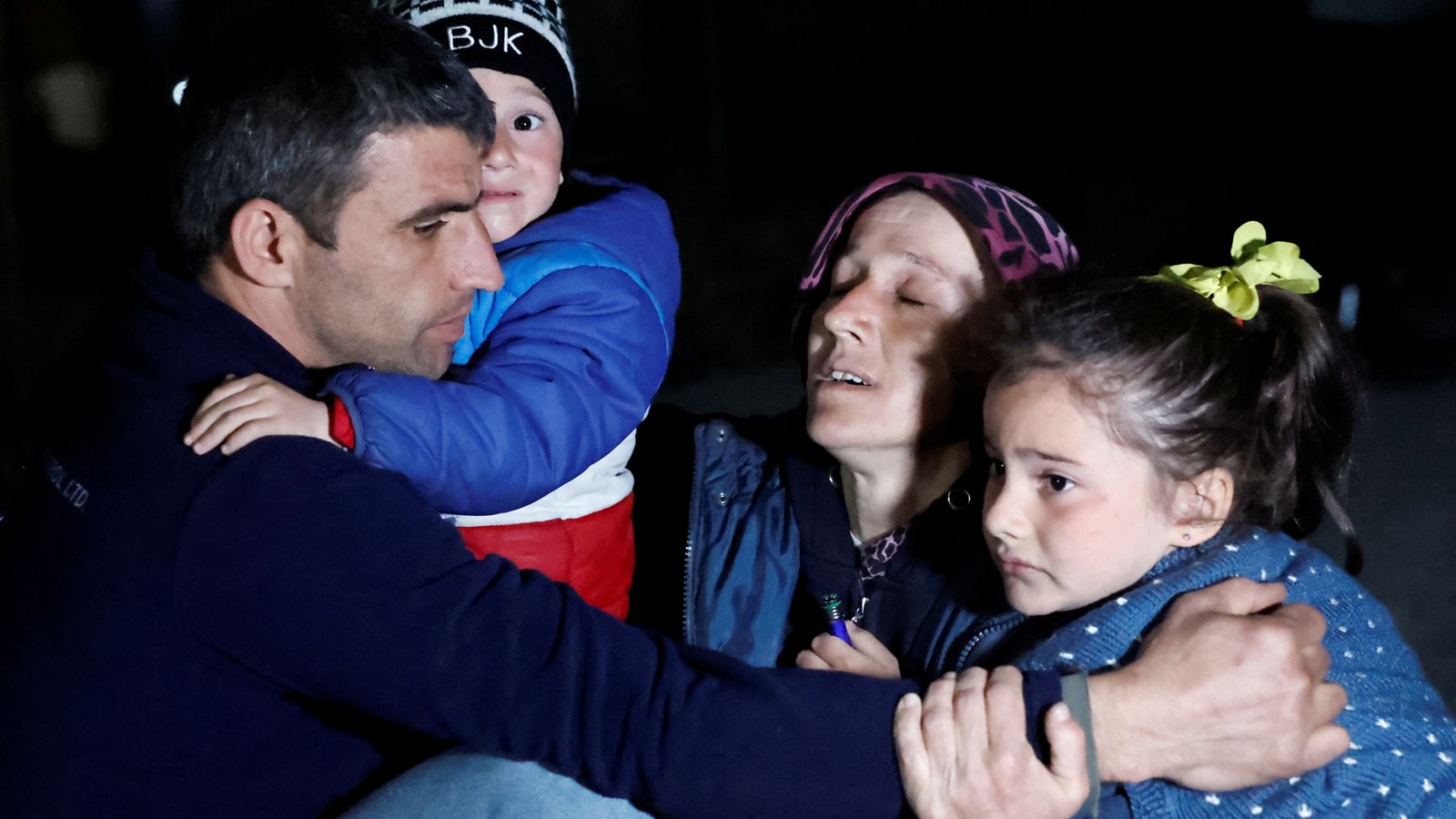Turkey-Syria border region hit by 6.4 magnitude earthquake

A 6.4 magnitude earthquake has struck the Turkey-Syria border two weeks after a massive quake in the region left nearly 45,000 people dead, the US Geological Survey has said.
Turkey’s AFAD disaster management agency has said the earthquake was centred around the town of Defne in Hatay province, which was devastated by a huge tremor in the disaster earlier this month.
The earthquake today was followed by a second, magnitude 5.8 tremor.
The US Geological Survey (USGS) has said the powerful earthquake has struck at a depth of 10km (6.2 miles).
Turkey’s state-run Anadolu Agency said the quake was felt in Syria, Jordan, Israel and Egypt.
Two Reuters witnesses reported a strong quake and further damage to buildings in central Antakya, the capital of Hatay province in Turkey.
Other witnesses said Turkish rescue teams were running around after the latest quake, checking people were unharmed.
NTV television said the quake caused some damaged buildings to collapse, but there were no immediate reports of any casualties.
Muna Al Omar, a resident, said she was in a tent in a park in central Antakya when the earthquake hit.
Advertisement
“I thought the earth was going to split open under my feet,” she said, crying as she held her 7-year-old son in her arms.
“Is there going to be another aftershock?” she asked.
Meanwhile, some media outlets in Syria’s Idlib and Aleppo regions that were badly affected by the latest earthquake are reporting that some buildings have collapsed and that electricity and internet services have been interrupted in parts of the region.
The media outlets said many people fled their homes and are gathering in open areas.
The Turkish disaster management agency, AFAD, has raised the number of confirmed fatalities from the earthquake in Turkey to 41,156.
That increases the overall death toll in both Turkey and Syria to 44,844.
The magnitude 7.8 that struck on 6 February also left more than a million people homeless.
Turkish authorities have recorded more than 6,000 aftershocks.
Search and rescue operations for survivors have been called off in most of the quake zone, but AFAD chief Yunus Sezer told reporters that search teams were pressing ahead with their efforts in more than a dozen collapsed buildings – most of them in the hardest-hit province of Hatay.
There were no signs of anyone being alive under the rubble since three members of one family – a mother, father and 12-year-old boy – were extracted from a collapsed building in Hatay on Saturday.
The boy later died.